Diabetes Management & Screening
Services > Diabetes
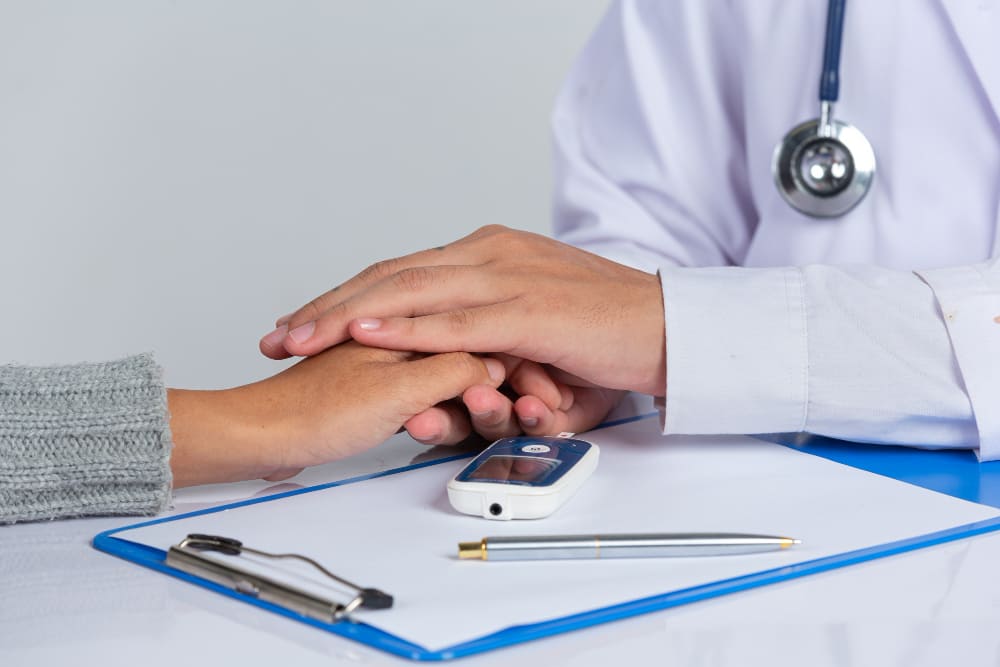
Diabetes Treatment in Floral Park & Jackson Heights, NY
Over 34 million people in the United States have diabetes, also known as hyperglycemia, a condition where the body cannot regulate sugar levels for cells to produce glucose energy.
At Floral Park Medical P.C. and Cross Island Medical located in Floral Park and Jackson Heights, NY, Our diabetes doctor are dedicated to providing medical advice and support to help our patients with diabetes management. Our health practitioners utilize a comprehensive strategy that entails personalized interventions, including medical screening, treatments, dietary changes, and physical exercise for diabetes management.
Led by Dr. Himanshu Pandya, our team offers a range of diabetes care services, including:
- Diabetes screening and diagnosis
- Personalized diabetes treatment plans
- Ongoing monitoring and support
What is Diabetes?
Diabetes is a chronic disease characterized by high blood sugar levels due to the body’s inability to manage blood sugar properly. Diabetes management includes monitoring for hyperglycemia, regulating food consumption, engaging in physical movement, and occasionally using medications to prevent complications such as diabetic neuropathy and ischemic heart disease.
Types of Diabetes
Type 1 Diabetes: Common in children and teenagers, this type involves the immune system attacking the beta cells in the pancreas.
Type 2 Diabetes: Most prevalent among adults, this type is characterized by either poor insulin production or body resistance to insulin, leading to higher blood sugar levels.
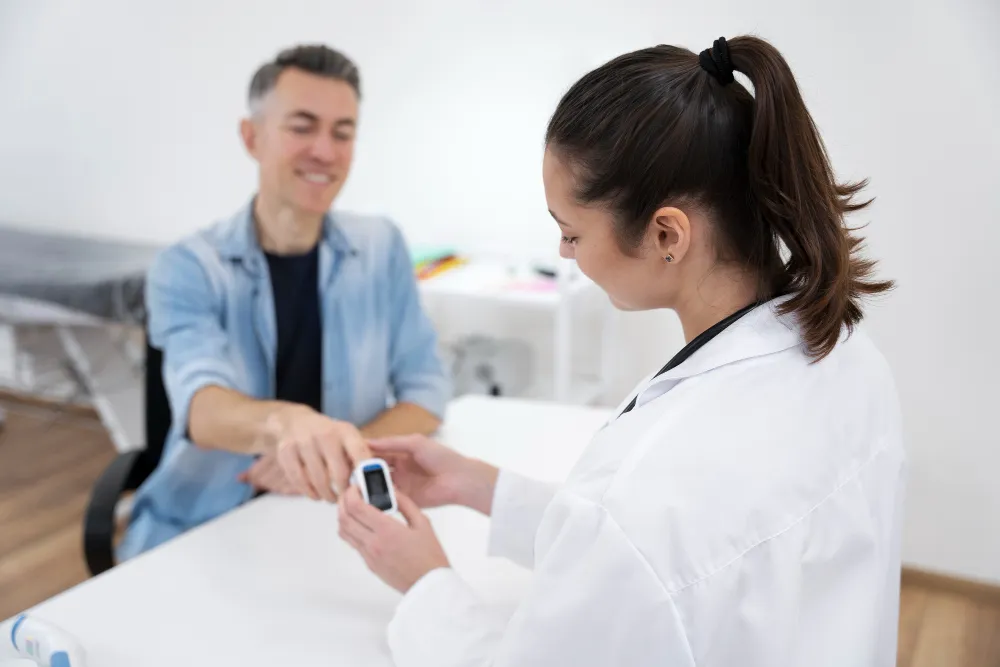
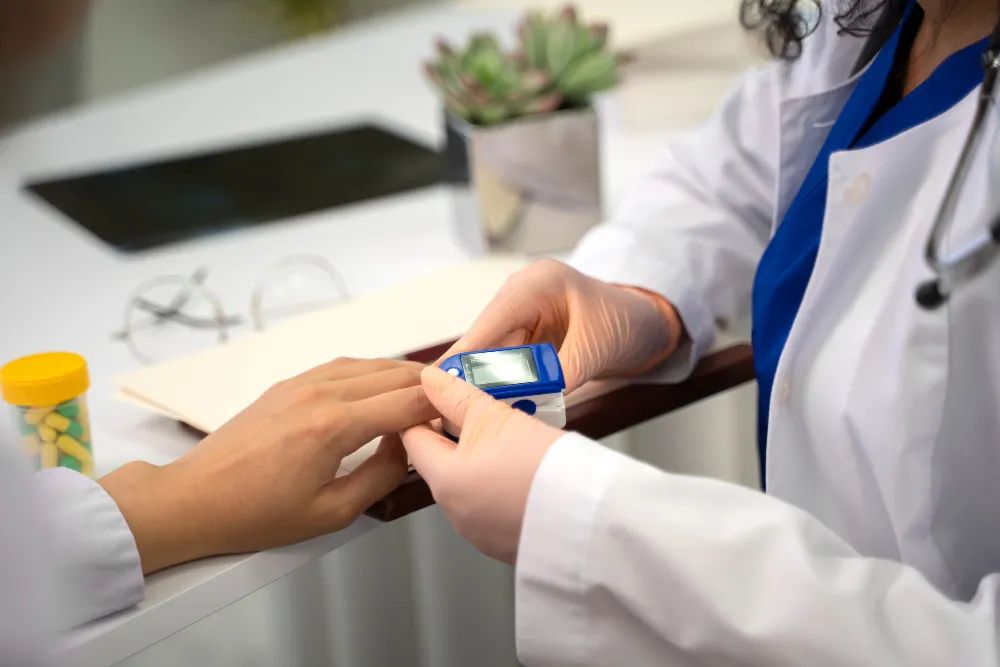
What Are the Symptoms of Diabetes?
Depending on the type and severity, symptoms of diabetes may include:
- Frequent urination
- Increased thirst
- Increased appetite
- Unexplained weight loss
- Fatigue
- Blurred vision
- Slow-healing sores
Living Well with Diabetes
- Customized Healthcare: Based on your lifestyle and expectations, we will create a treatment plan specifically for you to manage your diabetes.
- Patient Training: We empower patients with knowledge and tools needed for effective diabetes management.
- Continuous Support: During your journey towards diabetes care, we provide ongoing support and encouragement.
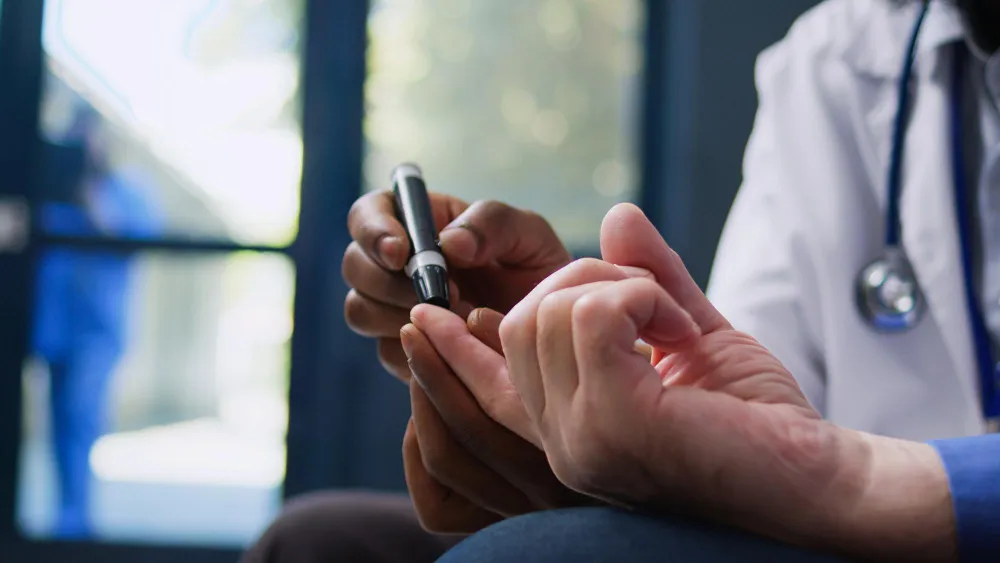
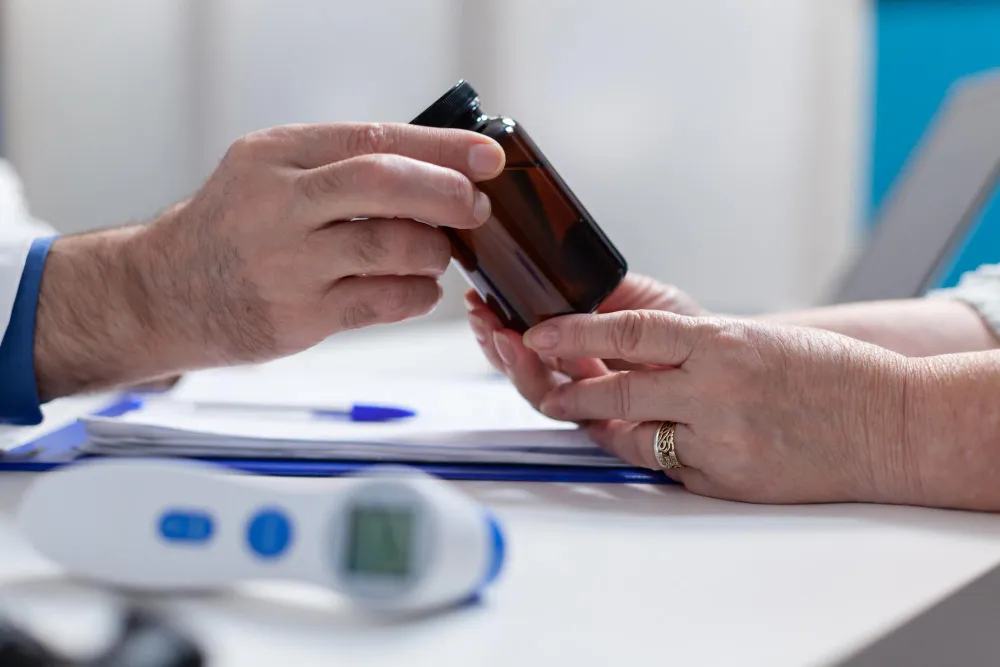
How to Manage Diabetes?
- Healthy Eating: Ensure that you have a diet that is complete with fresh fruits, vegetables, and whole grains, avoiding processed food, sugar drinks, and unhealthy fats.
- Regular Exercise: Aim for at least thirty minutes of moderate-intensity exercise every day.
- Weight Management: Losing extra pounds can significantly improve blood sugar levels.
- Blood Sugar Monitoring: Regularly testing the amount of sugar in your blood will enable you to understand how different foods, medications, and workouts impact your body.
Benefits of Diabetes Treatment and Regular Screening
- Blood Sugar Control: Helps maintain healthy blood sugar levels.
- Reduced Complications: Lowers the risk of heart disease, kidney damage, and neuropathy.
- Life Quality Enhancement: Boosts energy levels and overall well-being.
- Weight Control: Assists in achieving and maintaining a healthy weight.
- Eye Health Support: Reduces the risk of diabetic retinopathy.
- Skin Healing Compound: Helps heal minor cuts and bruises quicker.
- Psychological Well-being: Minimizes stress & anxiety associated with diabetes care.
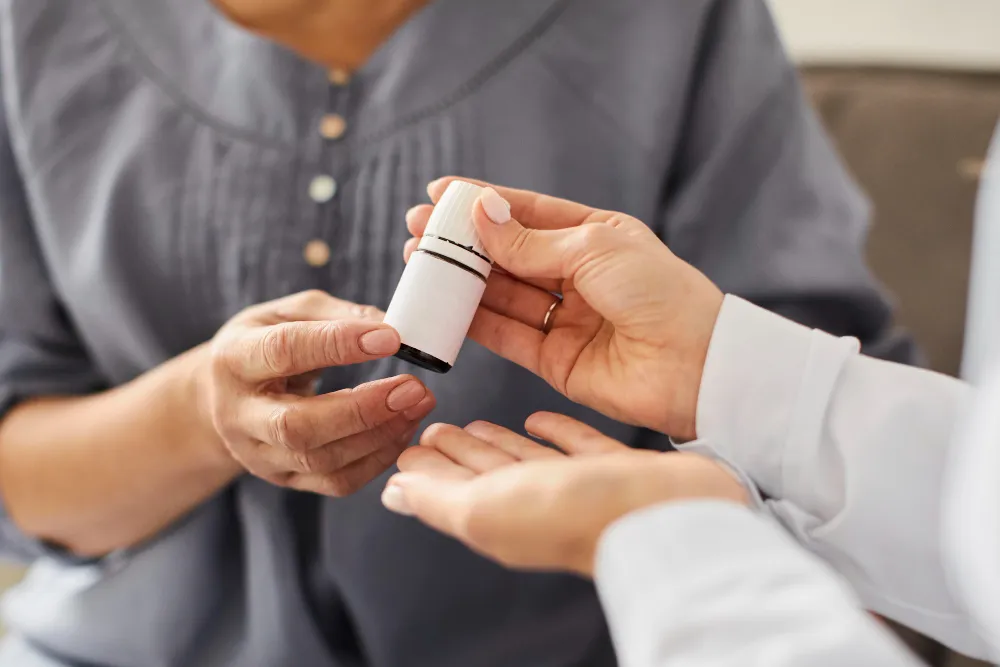

Contact Us
To make inquiries about our diabetes care services, book an appointment, or contact Floral Park Medical, P.C. in Floral Park and Cross Island Medical in jackson Heights, NY. Our caring customer support team and medical staff is ready to assist you.
FAQs About Diabetes
What are the complications of diabetes?
Poorly managed diabetes can lead to serious complications such as heart disease, kidney damage, and neuropathy. Other issues include vision loss and foot sores.
How can you prevent complications in diabetes?
What should I focus on to manage diabetes effectively?
We provide resources to aid patients in managing the psychological side-effects of diabetes and maintaining overall health.
What Are the Screening Tests for Diabetes?
Screening for diabetes typically includes tests like the Fasting Blood Sugar (FBS) test, HbA1c test, and the Oral Glucose Tolerance Test (OGTT). These tests help detect early signs of diabetes or prediabetes and guide appropriate management.
What Level of Blood Sugar Is Dangerous?
A blood sugar level higher than 180 mg/dL after meals or lower than 70 mg/dL (hypoglycemia) can be dangerous. Extremely high levels, such as above 300 mg/dL, may lead to diabetic ketoacidosis, a life-threatening condition.
Is Type 2 Diabetes Curable?
Type 2 diabetes is not curable but can be effectively managed with lifestyle changes, medications, and, in some cases, weight loss surgery. Early intervention and proper management can help achieve long-term remission.
How to Control Sugar Level Immediately?
To quickly lower high blood sugar, drink water, take prescribed insulin or medications, and engage in light physical activity if recommended by your doctor. For low blood sugar, consume fast-acting carbs like glucose tablets or fruit juice.

